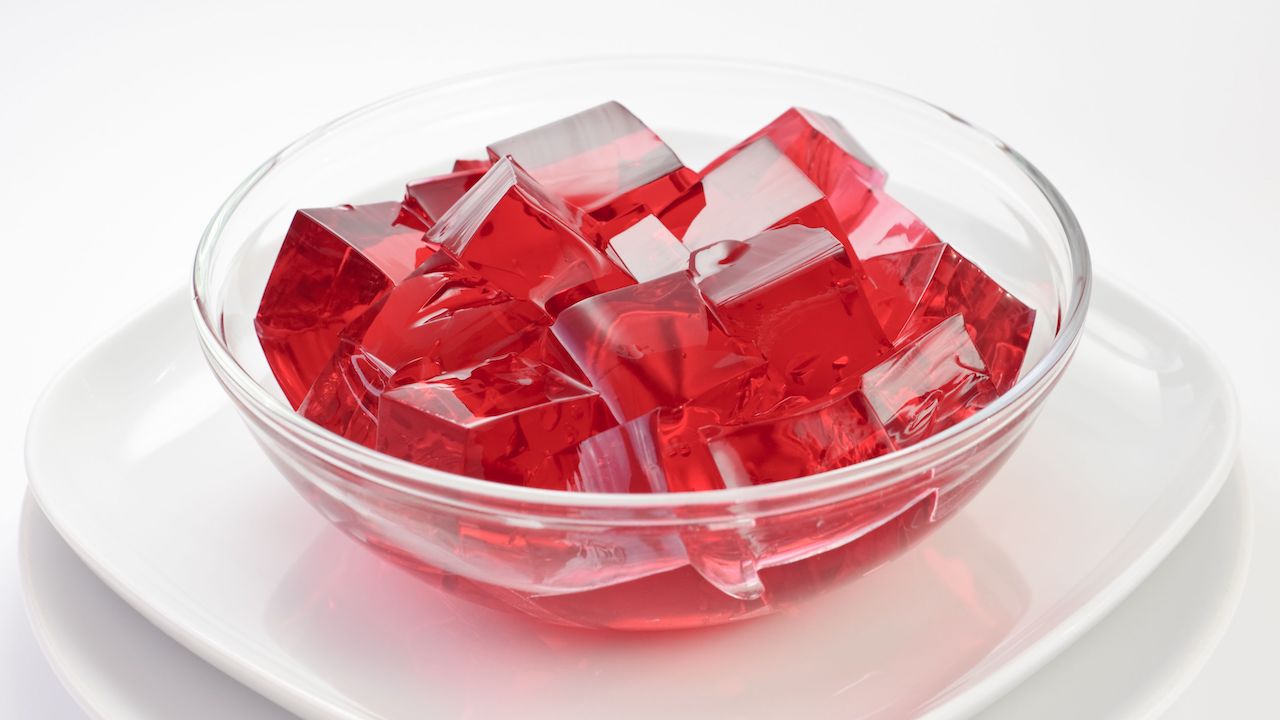At a certain point in life, you might have taken benefit of gelatin wonders. Your first encounter would be when you were a child making Jello (do you remember long hours waiting for this to set?) and rediscovering fruity and jiggly classics during adulthood, but this time, with the boozy tweak. The magic extends to a wide variety of dishes from dumplings and marshmallows to pie & panna cotta.
What’s Gelatin Made From?
Manufacturers make gelatin by processing the bones of animals, skin, and cartilage. They may use bodies of fish or cows, for example.
The process extracts its collagen, fibrous protein, which connects bones, muscles, and skin, and turns this into gelatin, a flavorless and colorless, jelly-type substance.

Pros of Gelatin
- Characteristics of gelling essential for the manufacture of gummies
- It’s an aerating agent & emulsifier, stabilizer, film forming, protective colloid, water binding, and adhesive, it’s a versatile product
- It has a “melt in mouth” quality, referred to as “thermal reversibility”. It means that Gelatin will transition from the solid state to the melting state at the body temperature & ingestion. This will allow for a rapid and intense release of flavor. Thus, with hydrocolloids you do not get the same flavor sensation, that hydrocolloid isn’t melting when it is in the mouth.
- A further benefit of the Gelatin formulation is the ingredients’ inherent sheen, which can produce gummies with stunning transparent color. Often manufacturers can coat gummies in powdered sugar so there’re alternative methods to achieve “visual brilliance”. But, it’s regarded that a combination of Gelatin of sheen & melt in mouth texture has still to get duplicated by alternative.
Cons of Gelatin
- Gelatin is SAFE for people in food amounts and in larger quantities used as medicine. There is evidence that gelatin used in doses of 10 grams daily will be used safely for over 6 months.
- Gelatin will cause unpleasant taste and flavour, heaviness in the stomach, heartburn, bloating, and belching. Gelatin will cause allergic reactions in many people.
There’s a certain concern about gelatin safety as it comes from animal sources. Many people are actually worried that unsafe manufacturing practices will lead to gelatin products contamination with diseased animal tissues including those that may transmit the mad cow disease. Even though this risk appears to be on the lower side, several experts advise against making use of animal-derived supplements such as gelatin.
Portion
When consuming gelatin as a supplement, it is suggested to take over 10 grams per day for over six months is totally safe.
Gelatin will be found in various other foods, which include broths, soups, desserts and candies. Some will have high sugar and fat levels, so they must be eaten in complete moderation. When taking gelatin for diabetes Type 2 must avoid sugar-heavy foods.
| Pros | Cons |
| Satiate hunger | Not simple to prepare |
| Enhance athletic performance | Costly |
| Helps in recovering from anxiety and stress |
Final Takeaway
Gelatin is a protein-rich ingredient that enhances the texture, flavor, and nutritional content of some foods, like stews, mousses, and gelled desserts.
It will benefit health in many different ways, but normally, confirming the benefits needs more research. The supplements will be another way to get nutritional advantages.
As Gelatin is an animal product, hence it is not good for people with vegan or vegetarian diets. Agar agar and pectin are plant-based substitutes.